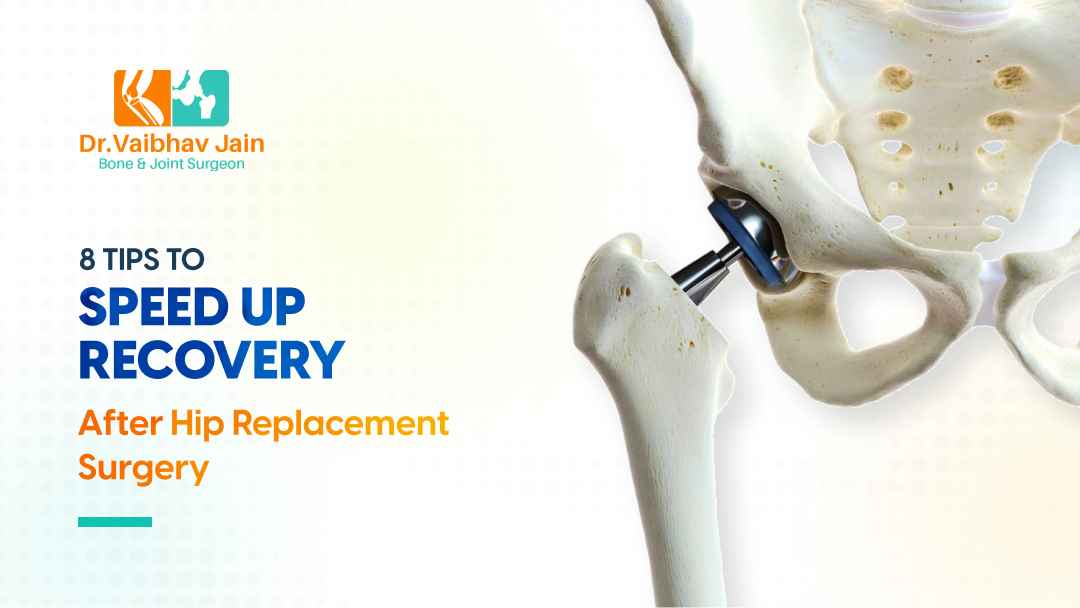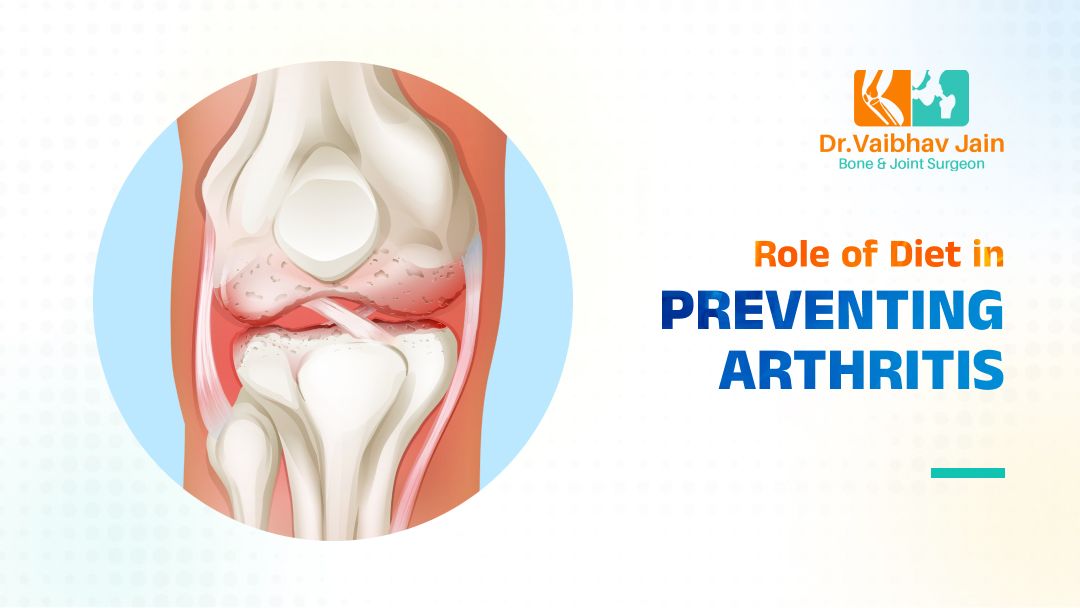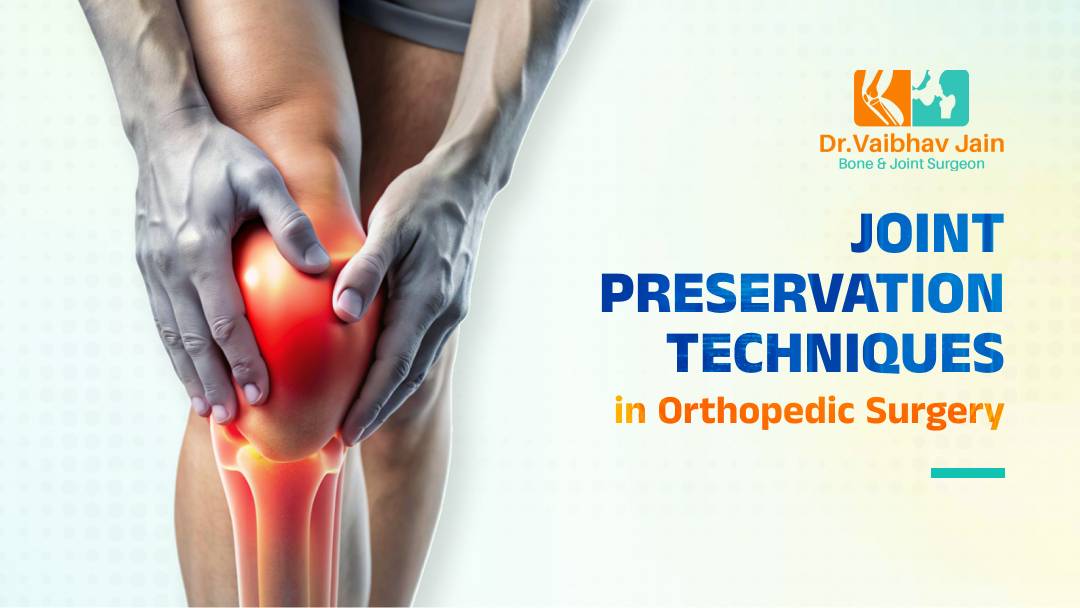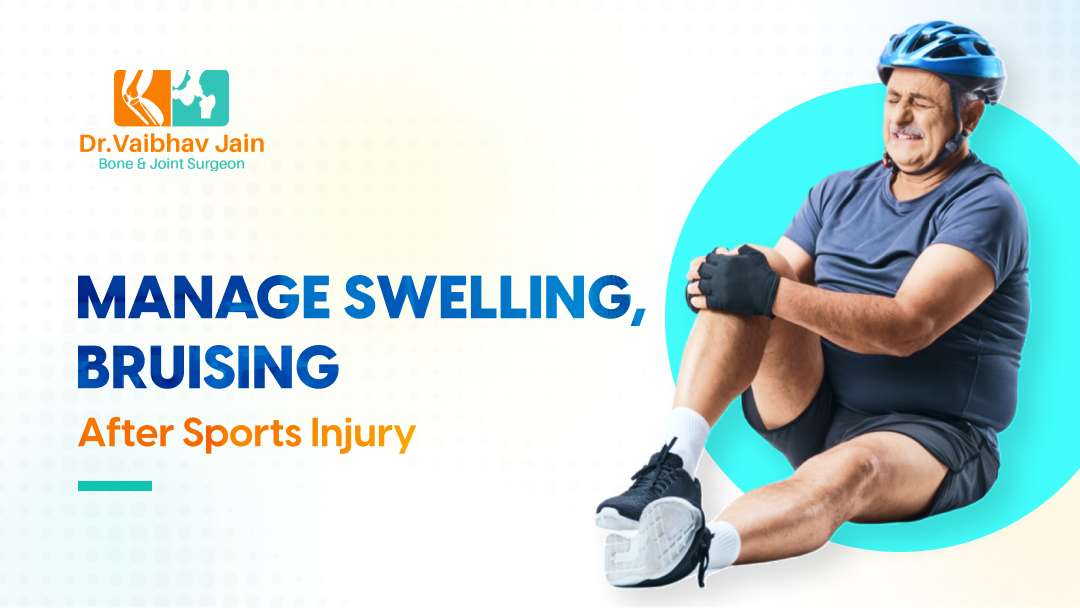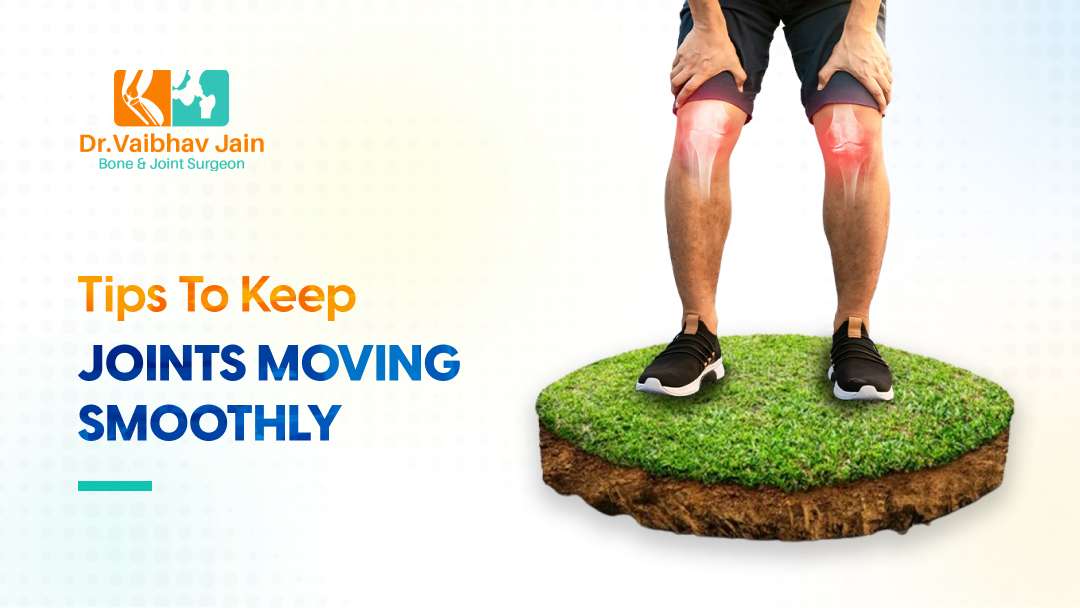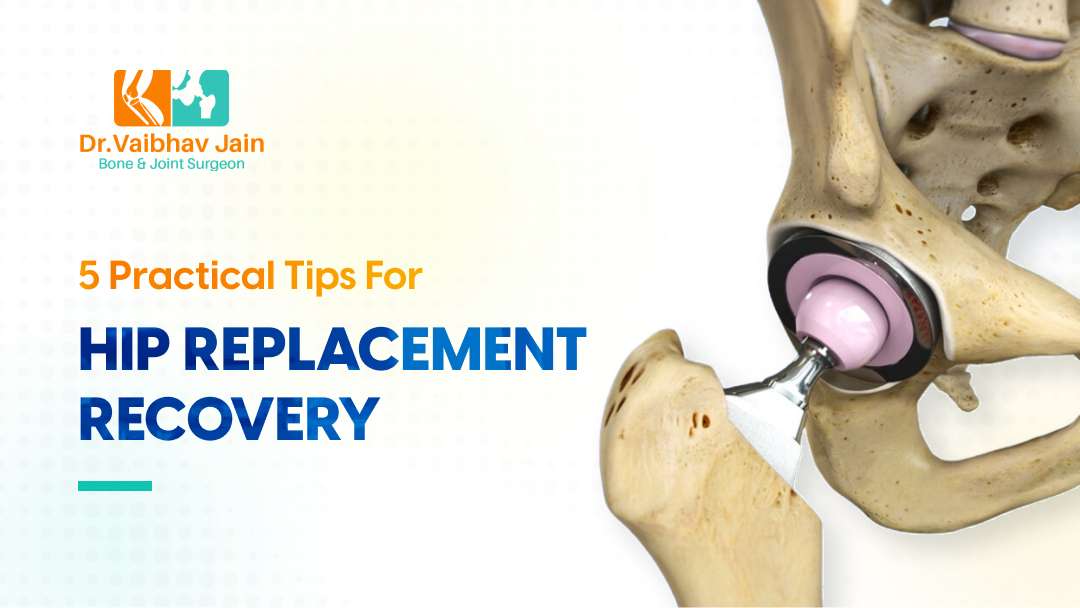Anyone suffering from joint arthritis knows the agony of waking up each morning with stiff and sore muscles. Daily life is often a challenge, and it may feel difficult to go about routine tasks like showering, dressing, or moving around. Tips to speed up Recovery After Hip Replacement.
Thanks to advancements in surgery in recent years, joints can be greatly strengthened, and a full recovery can be achieved more quickly. Whether it’s the first or fifth hip replacement surgery, recovery time is critical, and patients are advised to be as active as possible during the recovery period.
Hip replacement surgery is a major medical procedure and can have a major impact on your life. While the surgery is often necessary to improve mobility and reduce pain, it can also be a long and difficult recovery journey. However, with the right tips, you can speed up your recovery process and get back to your normal activities as soon as possible.
In this blog, we’ll discuss eight tips to help you speed up your recovery after hip replacement surgery.
1. Follow Your Doctor’s Instructions
One of the most important steps in your hip replacement recovery is following your doctor’s instructions for exercise and rehabilitation. Exercise and rehabilitation can help you get back on your feet faster and reduce the risk of complications. Depending on the type of surgery you had, your doctor may provide specific instructions on how to best proceed with rehabilitation.
For example, if you had a hip resurfacing, your doctor may recommend that you take part in physical therapy exercises to strengthen your muscles around the hip. These exercises are important to ensure that the muscles around your hip are strong enough to support the new joint. Your doctor may also recommend that you attend a physical therapy session to learn how to properly use crutches and walkers, as well as how to safely get in and out of bed.
It’s also important to follow your doctor’s instructions for pain management. Pain medications may be prescribed to manage any discomfort associated with the surgery. Additionally, your doctor may suggest certain activities or exercises help you cope with any pain you may be experiencing.
2. Get Plenty Of Rest
Getting adequate rest is important for anyone, but it’s especially important when recovering from surgery. You need to give your body enough time to heal and recover for it to work properly.
Resting helps to reduce inflammation, speed up the healing process, and get your strength back. Even though you may feel antsy and want to get back to your normal activities, it’s important to give your body the rest it needs so that you can heal properly.
When you’ve just had surgery, it’s important to keep the following tips in mind to make sure you’re getting enough rest:
- Get plenty of sleep. Aim to get between 7-9 hours of sleep each night.
- Take short naps throughout the day if you need them.
- Avoid activities that are too strenuous or taxing.
- Try to relax and reduce stress.
- Avoid caffeine and other stimulants.
- Get help for any pain or discomfort you experience
3. Eat A Healthy, Balanced Diet.
Eating a healthy, balanced diet is essential for all of us, but especially important after a major surgery like a hip replacement. It’s important to include plenty of lean protein, fruits, vegetables, and whole grains in your diet to ensure that your body has the nutrients it needs to heal itself and rebuild tissue.
Protein helps repair and rebuild muscle tissue, and fruits and vegetables provide a wide range of vitamins and minerals that can help with healing. Whole grains are also an important source of energy that can help to combat fatigue as you heal.
4. Stay Hydrated
Staying hydrated is an essential part of the recovery process following hip replacement surgery, and it helps to speed up the recovery process. When recovering from any type of surgery, your body needs to stay hydrated to stay healthy and heal. But post-hip replacement surgery, staying hydrated is even more important.
Drinking enough fluids helps to replenish the body after surgery, and it also helps to flush out toxins and reduce inflammation. Drinking plenty of fluids also helps to reduce swelling, stiffness, and pain. Dehydration can also slow down the healing process and make it harder to recover quickly.
5. Monitor Your Pain Levels
If you’re recovering from hip replacement surgery, it’s essential to monitor your pain levels. Keeping an eye on your pain can help you speed up your recovery and ensure you’re getting the best care possible.
Pain after hip replacement surgery is quite common and is usually a sign of body healing. However, if your pain worsens or persists for more than a few days, it’s important to contact your doctor immediately.
Monitoring your pain levels is one of the best ways to speed up recovery after hip replacement surgery. It can help you identify any issues that need to be addressed so that you can get back to a full and healthy life sooner.
One way to monitor your pain levels is to keep a pain diary. Every day, take note of the intensity and location of your pain and rate it according to a scale of one to ten. This will help you and your doctor track your progress and make any necessary adjustments to your treatment plan
6. Take Medications As Prescribed
After a hip replacement surgery, you may be prescribed pain medications, anti-inflammatory medications, and other medications to help reduce pain and inflammation and speed up recovery. Pain medications, such as opioids and nonsteroidal anti-inflammatory drugs (NSAIDs), can help reduce pain and inflammation while you recover. Anti-inflammatory medications, such as corticosteroids, can help reduce inflammation and swelling. Finally, other medications, such as anticoagulants, may be prescribed to help prevent blood clots.
It’s important to take your medications as prescribed and not to skip doses or take too much, as this can lead to serious side effects. If you’re unsure how to take your medications, or if you have any questions or concerns, talk to your doctor or pharmacist for advice. It’s also important to tell your doctor about any other medications you’re taking, as some of them may interact with your prescribed medications.
7. Stay Active
One of the best ways to stay active during your recovery is to start with low-impact activities, such as walking. This can help you to gradually regain strength and flexibility in your hip. As your strength and flexibility increase, you can start to add more strenuous activities, such as cycling or swimming. Before adding any new activities, it’s important to discuss them with your doctor to ensure that they are right for you.
If you’re finding it hard to stay motivated, try to find activities that you enjoy. This can help to keep you engaged and make the recovery process more enjoyable. You can also reach out to family, friends, or support groups for encouragement.
8. Use Assistive Devices
Assistive devices can be anything from walkers and canes to wheelchairs and even prosthetic limbs. These devices allow you to move around and do everyday tasks with greater ease and speed. They can help you to recover from hip replacement surgery much faster and more effectively.
When it comes to recovering from hip replacement surgery, it is important to get the right assistive device for your needs. There are many different types of assistive devices available, so it’s important to do your research before you make a purchase. Make sure that the device you choose is designed for your specific needs and is comfortable for you to use.
Summery
Hip replacement surgery is a major medical procedure and the recovery process can be long and difficult. However, by following the right tips and taking the right precautions, you can ensure a speedy recovery. Get plenty of rest, exercise regularly, eat a healthy diet, and be patient with yourself during the recovery process. With the right plan and dedication, you can return to your normal activities sooner and with minimal pain.
Dr. Vaibhav Jain understands that the recovery process can be difficult. He will work with you to create a personalized plan of care to ensure that you are getting the best care and advice for your recovery. Dr Jain will provide you with detailed instructions on how to manage your recovery process, including how to properly care for your hip replacement and how to manage your daily activities.
